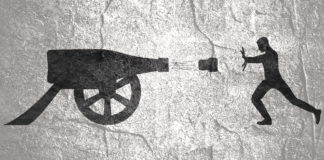Excellence and modesty | An interview with Dr Bert B. Beach
His name is Bert B. Beach. Until his retirement in July 1995, he was director of the Public Affairs and Religious Liberty Department (PARL) of the General Conference of the Seventh-day Adventist Church.
Five steps to change your money mindset
Do you remember the man who was supposed to marry Rose in Titanic? He dressed exceptionally well, had slick brown hair and was from a family of great wealth. His character was based on the life of a man named Caledon Hockey. He survived the shipwreck but not the Wall Street Crash. When the stock market fell in 1929, Cal’s money and everyone else’s plummeted...
The sprouts of genomics
Although the results do not seem spectacular yet, at least to the majority of the population, probably the most remarkable advances in the field of healthcare in the last 30 years relate to the mapping of the human genome (completed in 2003), the genome of other animal and plant species, and the development of bioinformatics.
The kind of romance that destroys our relationships
Twenty-first century people are bombarded with fiction about romance.
COVID-19: Should we care about the environment in the midst of an economic crisis?
Our planet may be fittingly compared to the 1994 film, Speed: A bomb is planted on a bus and rigged to explode when the bus slows to less than 80 kilometres per hour. The bus barrels through Los Angeles, hitting obstacles and endangering the lives of passengers and pedestrians until a solution is found.
Addicted to alcohol: The friends and enemies of abuse
When you are addicted to alcohol, the whole of society is your enemy: TV shows, their commercials, your neighbours in your free time, the family at big holiday gatherings, entire aisles in shops that convey the message that "you'll feel better if you drink alcohol".
The crossless Cross
The mention of the city of Rio de Janeiro evokes images of the traditional carnival or the vast, exotic beaches such as Ipanema and Leblon. But most often we think of the huge monumental statue representing Christ the Redeemer (Cristo Redentor) with wide, open arms, looking down towards humanity from the top of Mount Corcovado (700m).
“All the places to go… How will you know?” | Book review
The book written by John Ortberg, All the Places to Go... How Will You Know? invites us to reflect on the discerning of God’s will for our lives.
Dare to eat plants like Daniel
In late 2019, an explosive new documentary, Game Changers, was dominating fitness industry headlines. Boasting the approval of Arnold Schwarzenegger, Novak Djokovic and Lewis Hamilton, the documentary claimed that peak athleticism could be attained on a plant-based diet—combatting longstanding assumptions about eating meat for muscle growth.
How God heals a marriage that is lost
Kent Hansen kindly agreed to talk to us about the most painful episode of his life, the loss of his wife. Beyond the sadness, it is a discussion rich in emotion and lessons for us all.
How to really help someone suffering from depression
When confronted with someone else’s strong emotions—intense joy or heartbreaking pain—we often do not know how to react. In the case of joy, the other person usually doesn't mind, because his feelings console him. But in the case of pain, things are completely different. Misunderstood suffering can make the sufferer isolate himself from the very people who could help him. So, how can...
Life-giving depression
It’s an invisible force, lurking and weighing heavily within, gradually convincing you that life isn’t worth much, that it’s better to let go. From the depths of depression, the journey back is incredibly tough, but not impossible. Kevin Breel is one of those people who can attest to this.
The Ecumenism Files III: From the Reformation to Postmodernity
The dialectical spirit of ecumenism gives rise, among other things, to a question whose full answer is still awaited: How is it that the critical spirit and rationalism of Enlightenment origin, combined with making the Bible available to ordinary people, has led to so many schisms?
Reformation: The real face of Christianity
The Great Reformation was not a simple schism within Western Christianity. It was not just a religious and political movement. The Protestant Reformation, with its particular spirit and principles, was, first and foremost, a return to the true source and values of Christianity—an attempt to restore.
Are science and religion compatible?
In recent weeks, the results of a Fermilab scientific experiment have caused quite a stir in the scientific community. The experiment, which dealt with some of the fundamental particles of the universe, has the potential to change humanity’s understanding of modern science. As a result, it is also raising questions about what science is, and if it can be wrong.


























